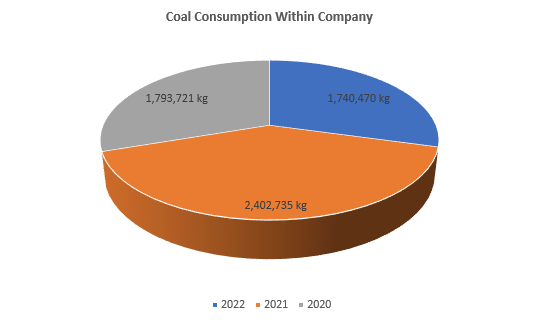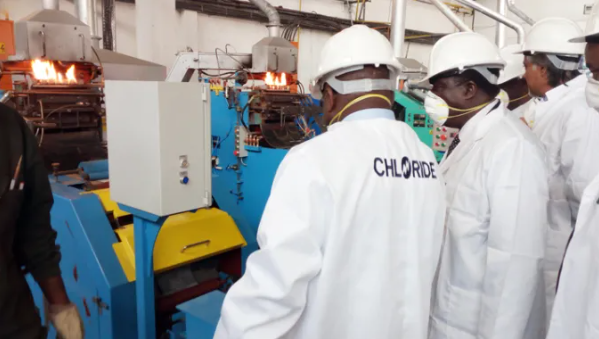By ETimes
Listed manufacturing group Amalgamated Regional Trading (ART) expects to reduce overall energy needs, expenses, and consumption by 5% per year.
This comes as the availability of energy is becoming more and more problematic. Energy has an impact on profitability, productivity, production costs and equipment efficiency.

In its annual report for the fiscal year ending September 30, 2022, the company stated that it will continue to seek out new, environmentally friendly management techniques and energy sources.
“The group conducts monthly electricity readings and fuel consumption to ensure full control of energy bills with the goal to supplement third party supplied electricity with solar power up to 50% by 2024 financial year,” the group said.
There was a decline in energy consumption within the company during the period under review.
Electricity consumption was down to 9,123,266 kwh in 2022 from 9,638,298 kwh in 2021. Coal followed, slumping from 2,402,735 kg in 2021 to 1,740,470 kg in 2022.

The case was the same with diesel consumption, which depreciated by 40.91% to 191,373 litres in 2022. In the same vein, petrol consumption fell by 23.21% to 7,831 litres.
Energy consumption outside the company also followed the same downward trend. Fuel used for administration, employee transportation, product delivery, and waste collection by our paper-processing businesses, Kadoma Paper Mill and the National Waste Collections, accounts for the majority of the energy used outside the company.
Diesel consumption outside the company was off 38.82% to 142,080 litres. Accordingly, petrol consumption outside the company went down by 28.09% to 140,394 litres.
“Diesel and petrol consumption decreased by 34% in 2022 compared to 2021 due to reduced activity and cost management measures.”
Recognising the economic, environmental and logistical challenges of running large-scale diesel generators for extended periods, the majority of companies are working on solar projects.

As of the financials, ART recorded a $1.5 billion inflation adjusted after tax profit for its financial year ended 30 September 2022. Upward fair value adjustments to investment properties of $1.6 billion and biological assets of $3.3 billion contributed significantly to the upturn in the group’s financial performance.
The group’s total revenues climbed 3% to $19.6 billion, with overall volumes rising by 10% and export volumes increasing by 12%.
Consequently, battery sales remained the group’s main revenue earner with sales of $18.1 billion, rising by 5% during the period after volumes increased by 10%.

During the year, the group’s operations generated net cash flows of $2.1 billion and net investment expenditures of $2.8 billion.
The group’s total assets stood at $33.2 billion, with cash holdings of $197 million, inventories of $3.4 billion and receivables of $2.4 billion. The total liabilities reached $14.8 billion, with total borrowings of $1.998 billion and payables of $4.2 billion.
The group did not declare a dividend for the financial year.
RECAP: https://etimes.co.zw/index.php/2022/12/14/analysis-weak-revenue-growth-as-fair-value-gains-drive-art-holdings-to-profitability/




